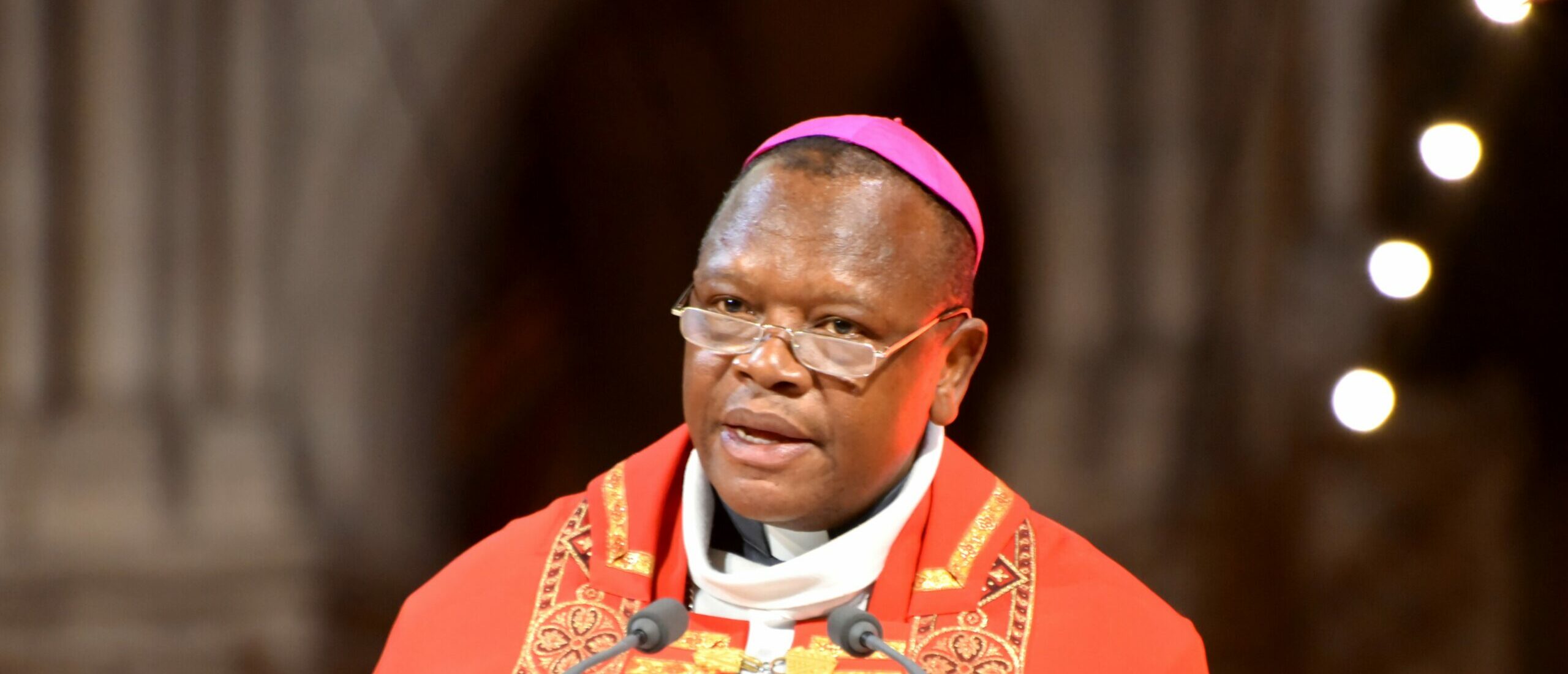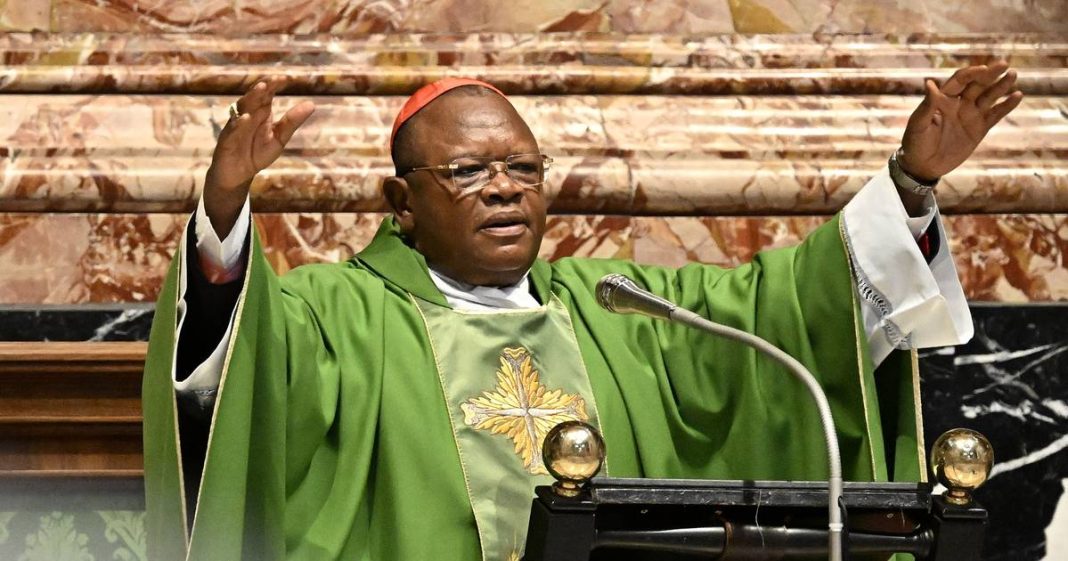The Catholic Archbishop of Kinshasa, Cardinal Fridolin Ambongo, has issued a powerful rebuke of the Congolese government’s narrative on national insecurity, stating that the Democratic Republic of Congo’s (DRC) persistent instability is not caused by Rwanda, but rather by internal mismanagement, corruption, and deep-rooted national failures.
Speaking during his Easter message, Cardinal Ambongo described the country as being in a “state of coma,” saying:
“We know very well that our country is in unbearable pain. It is gravely ill. And when someone is in a coma, the future becomes hard to predict. Today, Congo is in a coma.”
Cardinal Ambongo emphasized that the main reason for DRC’s current crisis is the unrelenting exploitation of its natural resources by powerful multinational mining companies backed by foreign powers.
“Everyone knows the primary cause of our collapse—it is the greed of major multinational corporations that seek to plunder Congo’s minerals, forests, and water for their own use,” he said.
The Cardinal warned that this exploitation is compounded by the absence of a capable military to protect the country’s sovereignty, which has allowed armed groups like the Alliance Fleuve Congo (AFC)/M23 to seize vast territories in eastern Congo with little resistance.
While the Congolese government frequently blames Rwanda for supporting the M23 rebellion, Cardinal Ambongo dismissed this as a deflection.
“The main reason for our insecurity is not foreigners, not Rwanda—it is us, the Congolese,” he declared.
He accused the country’s political elite of turning a blind eye to the war in the east, instead focusing on enriching themselves and securing positions of power.
“While the enemy expands their control, our leaders are busy fighting for seats in Parliament and positions in government,” he said.
Ambongo also shed light on the growing internal support for AFC/M23, pointing out that many of its new recruits are Congolese, including some from the capital, Kinshasa.
“How is it that Congolese youth, even from Kinshasa, are joining the rebellion in the east?” he asked. “We call them traitors, but the real question is—why are they doing this?”
According to him, many are driven by desperation, marginalization, and lack of justice. He cited cases where citizens are dispossessed of land and property under the guise of justice, with no recourse.
“In today’s Congo, someone can lose their land or home in the name of justice, with no one to defend them. Such people, in despair, end up seeing the rebels as liberators,” he said.
Cardinal Ambongo also denounced the country’s misuse of public funds. He revealed that out of the DRC’s $3 billion national budget, 70% is consumed by political elites, leaving only 30% for the general population.
“How can an MP in one of the poorest countries in the world earn $33,000 a month, while a university professor with a PhD earns a pittance?” he questioned.
He argued that these injustices are pushing more Congolese toward rebellion, convinced that only drastic change can liberate the country.
“They go east and join the rebels, saying they want to free the country,” he said.
Cardinal Ambongo concluded with a strong message to the Congolese leadership:
“Stop preaching peace—start building it. Words alone will not bring peace to our country.”
His message was a bold and rare indictment from a senior church leader in the DRC, and one that underscores the growing frustration among ordinary citizens toward a political system many now see as broken from within.




